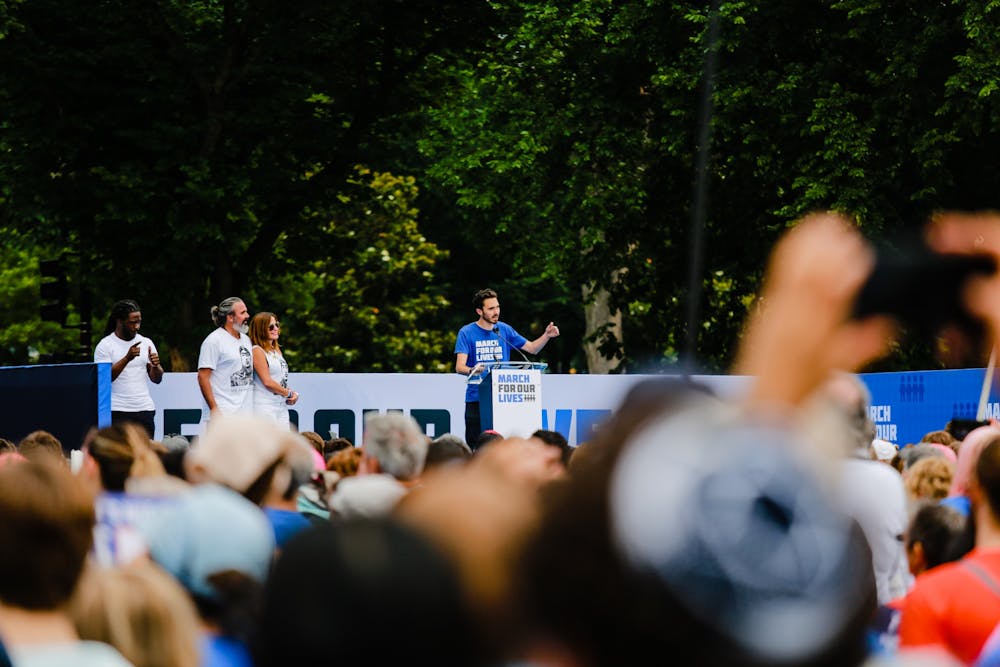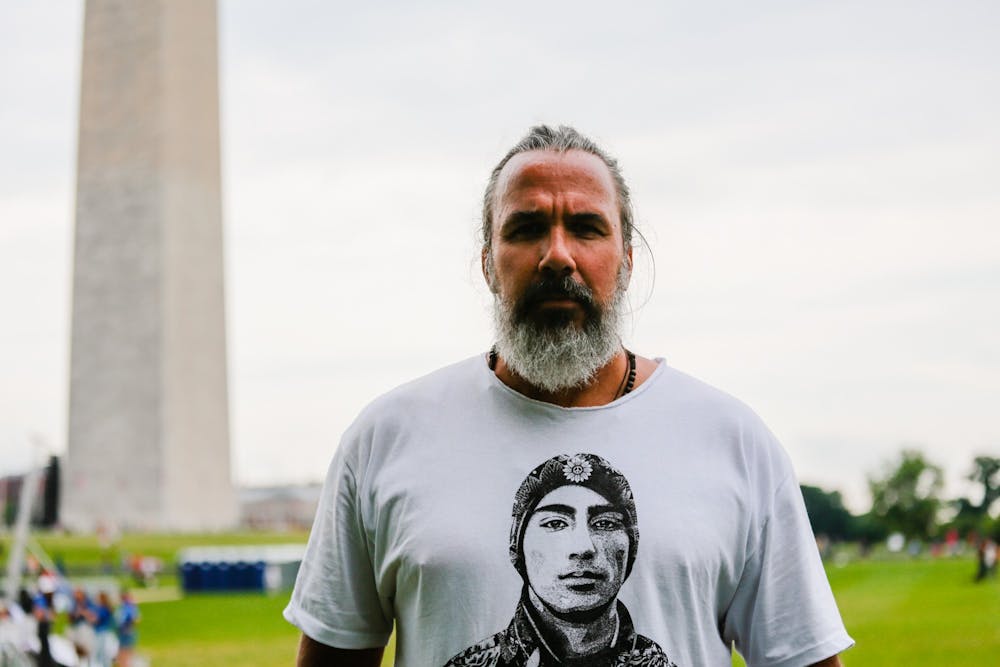
March for Our Lives, a student-led movement devoted to ending gun violence, rallied in Washington, D.C., on June 11 for the first time since 2018 to demand government action following recent nationwide mass shootings. The student-led movement was devoted to ending gun violence and founded after the Marjory Stoneman Douglas High School shooting in Parkland, Fla.
An estimated 40,000 people marched on the nation’s capital in response to recent mass shootings in Uvalde, Texas, Buffalo, N.Y., and other communities across the United States. In Philadelphia, a mass shooting killed three people and left 11 people injured on June 4.
The first March for Our Lives took place on March 24, 2018, when survivors of the Parkland shooting fomented a national movement in support of gun violence prevention. The rally, which took place in Washington, D.C., joined an estimated 1,380,666 to 2,181,886 people marching at 763 locations worldwide. Since then, the movement has helped reform legislation against gun violence across various U.S. states.
According to its website, the movement is rooted in gun control policies that take into account community needs. Protesters support measures such as raising the federal age of gun ownership to 21, universal background checks, and assault weapon bans. In both the Uvalde and Buffalo shootings, gunmen legally purchased AR-style rifles.
Several speakers, including March for Our Lives co-founder David Hogg and activist X González, American Federation of Teachers President Randi Weingarten, National Education Association President Becky Pringle, family of victims, survivors of gun violence, and others spoke out against the issue and called for immediate action from Congress.
“We now have a new majority in the House, Senate, and presidency. We can’t just push the ball to the goal line or get near the touchdown line, we need to actually score a touchdown,” Hogg, survivor of the Parkland shooting, told The Daily Pennsylvanian.
“We all are on the same side here, reality. It's either you're with the gun companies and the death cartel or you're on the side of peace,” Hogg added.

Besides the march in Washington, D.C., over 450 other locations around the world organized local rallies on Saturday.
“That's the thing about marches. We aren't just an organization that tries to take everybody in. We're trying to build as many megaphones that are saying the same thing, just trying to be a giant megaphone. We're trying to build a movement here,” Hogg said.
In 2020, firearm-related injuries became the leading cause of death among children and adolescents. On college campuses, eight mass shootings have been reported in the last 15 years.
“We demand change and if [the government] is not going to bring us that, we're going to vote you out and we're going to fill those seats ourselves,” rising College sophomore Zach Koung, who attended the rally in Washington, D.C. and organized a local walk-out in 2018, said to the DP.
“The University has to step up. It's not just about gun violence, it's really about stepping up. If we want to be this leader of inclusivity and equity, then our actions have to reflect that,” Koung added.
This year, 264 mass shootings have been reported in the United States according to the Gun Violence Archive, including over 20 mass shootings that have occurred since the massacre in Uvalde, Texas, on May 24.
“We thought that Sandy Hook was going to be the last time children were slaughtered in school at this level, and it's not. It's 10 years later, and clearly nothing has changed,” Tess Murray, neighbor of the Sandy Hook shooting gunman, said in an interview with the DP.
On June 12, the U.S. Senate reached a bipartisan deal on a set of gun safety measures. The agreement comprises things like enhanced background checks for any prospective gun buyer under the age of 21 and funding for mental health resources. However, it does not include some of the reforms that March for Our Lives supports, such as a ban on assault weapons or universal background checks.
“My daughter's in her 30s and we've been coming to them for these issues for that many years and most of them haven't really gotten answered satisfactorily,” Evelyn Carson, mother and grandmother who attended the rally, told the DP. “I just don't know what to do anymore, nothing seems to work."
Manny Oliver, father of a Parkland victim and gun violence activist, believes the movement should start with students and parents. He called for a student strike nationwide in his speech at the march.
“This is the moment to create disruption. Good trouble for a good cause. There's a big opportunity here to create that pressure that we haven't been able to create yet,” Oliver said to the DP.

Gatherers marched Saturday under similar circumstances as the ones from 2018, but with different goals this time — to demand national law reconstruction instead of only state legislature. March for Our Lives leaders highlighted that immediate action was needed from Congress and that the movement would continue until changes in gun control laws at the national level were achieved.
“Before, we came with sadness, and it was fresh. But now we come with anger and accountability,” Mei-Ling Ho-Shing, survivor of the Parkland shooting and member of the American Federation of Teachers, said.
The Daily Pennsylvanian is an independent, student-run newspaper. Please consider making a donation to support the coverage that shapes the University. Your generosity ensures a future of strong journalism at Penn.
Donate






